How Japan 2011 quake, tsunami survivors faced a ‘secondary disaster’: Sexual violence in shelters
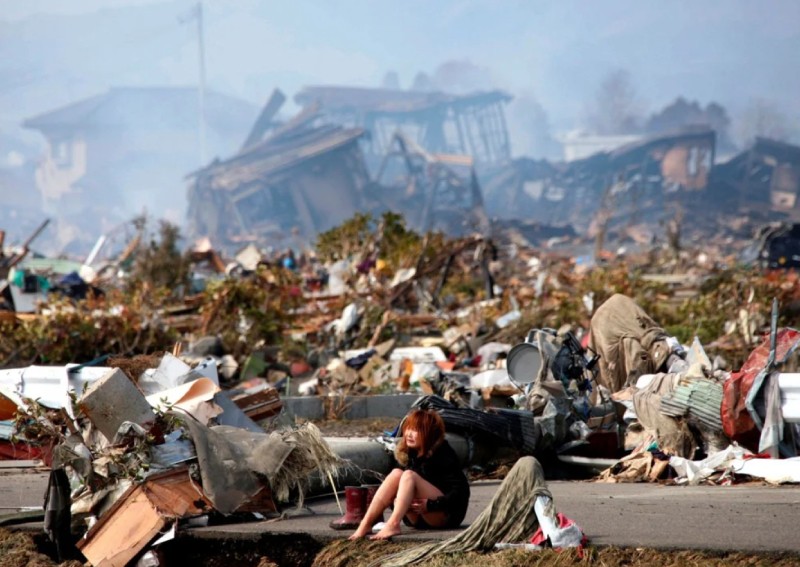
For some survivors, the anniversary of the earthquake and tsunami disaster will bring back memories of the sexual abuse they suffered a decade ago. This story is part of a series on women’s issues in China and Asia to coincide with International Women’s Day.
As Japan prepares to mark the 10th anniversary of the earthquake and tsunami that claimed more than 18,000 lives in 2011, a new documentary has shed light on a little-known tragedy that took place in the aftermath of the disaster – the sexual abuse of dozens of women in emergency shelters across the north-east of the country over the following months.
The 45-minute documentary by national broadcaster NHK, titled Buried Voices, is based on the large number of calls to telephone hotlines from women in the three hardest-hit prefectures, Fukushima, Iwate and Miyagi.
A number of women who were victims of sexual assault in the shelters are also interviewed, although their identities are concealed.
Their stories are, in places, so harrowing that the documentary has attracted widespread attention and comment in Japan.
In one interview, a woman whose husband was killed in the earthquake and whose home had been destroyed, was told by the head of the evacuation centre to go to his office later that evening for towels and food. “When I went to get them, he forced me to have sex with him,” she said.
In another incident, recounted by a woman in her 20s, “A man in a temporary housing facility gradually went crazy, caught hold of a woman and stripped her naked in a dark place. The people around did nothing to help her and pretended not to see anything. They said, ‘It can’t be helped because they are young’.”
A third interviewee reported being abused by multiple men. “I was afraid that if I was killed, I would be dumped in the sea and they would blame my disappearance on the tsunami. After that, I could not tell anyone what happened.”
The Yorisou Hotline was set up in the months after the March 2011 disaster to deal with requests for help, advice or just to offer an anonymous person to speak with on issues ranging from family matters to work concerns and mental health issues. Operators took more than 360,000 calls in the five years from 2013, with more than 50 per cent of calls from women seeking help in dealing with sexual abuse, including domestic violence and rape.
Young women in their teens or 20s accounted for 40 per cent of those who called after being abused.
Tomoko Endo, head of the 24-hour hotline, told NHK that the anniversary of the disaster will inevitably jog the memories of the victims, bringing back the abuse they suffered a decade ago.
“Every time a disaster occurs, the news coverage reminds victims of their experiences,” she said. “Some women will suffer from flashbacks or insomnia due to anxiety and fear and we expect telephone consultations to increase.”
She added that lessons had been learned from the 2011 disaster and that organisations such as the Yorisou Hotline will, in the event of another tragedy, be able to step in to prevent women and children from becoming victims of “a secondary disaster”.
The documentary revealed there were also reports of sexual violence in the aftermath of the Kobe earthquake in 1995, with similar accounts of women in temporary accommodation being targeted by sexual predators. At that time, however, there were few specialist groups capable of handling requests for help and women were more reticent about coming forward.
It is also possible that women chose not to take any action because some media outlets reported the abuse claims to be hoaxes.
Reports after the Tohoku disaster of 2011 identified 82 incidents of sexual assault, harassment or unwanted sexual contact, with victims aged between their teens and 60s. Many women were single, separated, divorced or widowed, with a number of the cases described as “quid pro quo assaults”, with women exploited for sex in return for food or shelter.
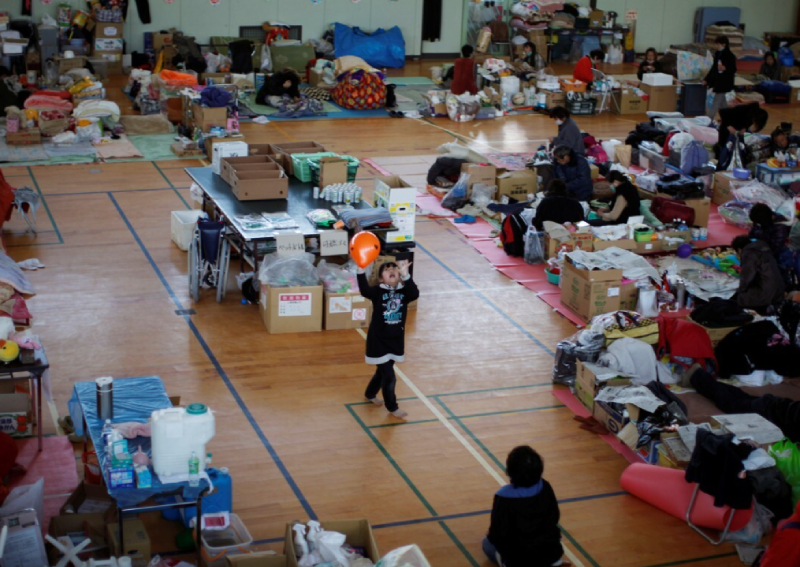
The documentary triggered angry comments online, with several messages on the NHK website calling for it to be rebroadcast so that more people could see it and be aware of the scale of the problem.
“It is strange that we are even having to call attention to this issue. It’s terrible that just because I am a woman it is dangerous for me to go to the bathroom. That makes me not want to drink water to avoid that situation. I was very angry as I watched the programme,” one message on the NHK site said.
Another said people living in emergency housing units may still be at risk. “Most people do not know that there were many sexual assaults after the earthquake, so we have to educate people by reshowing this programme,” the online comment said. “I hope people who have been affected by this can get help. And women, remember to protect your children.”
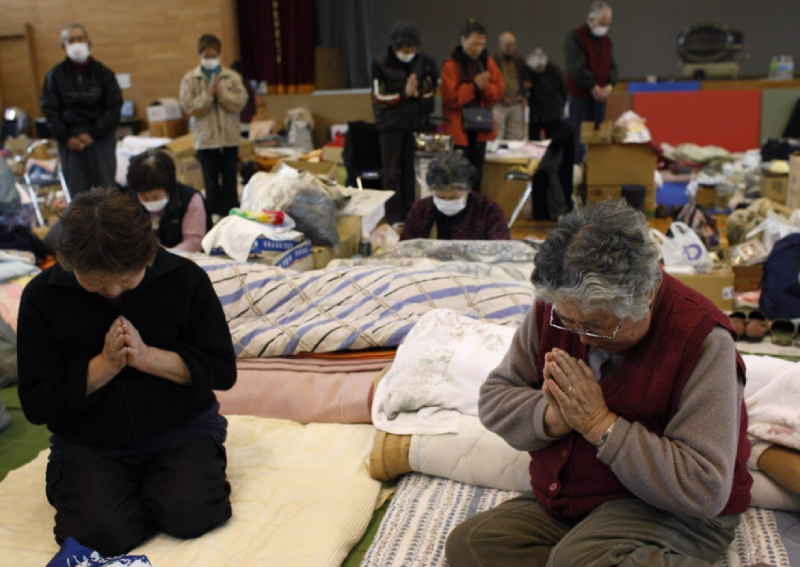
PHOTO: Reuters
Several people asked why the incidents were not reported to the police at the time – an issue the documentary did not address, although it appears that victims may have been reluctant to come forward out of a sense of shame or that they would not be believed.
On the SoraNews 24 website, a commenter said that “violating and raping victims of a natural disaster who have lost their loved ones and everything they own” is “truly despicable”. And a message on the Japan Today page said all perpetrators should still be held accountable, even though a decade has passed and the statute of limitations in Japan for any type of forced sexual crime is 10 years.
There has been no official comment or reaction from the Japanese government or police.


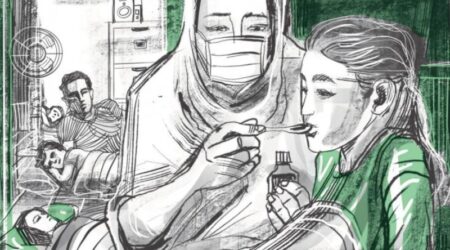





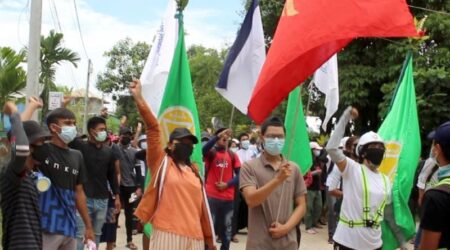
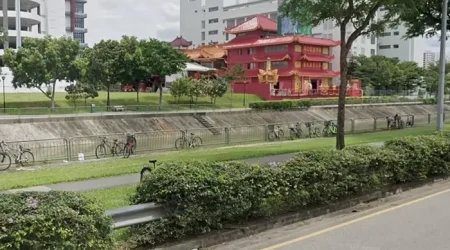

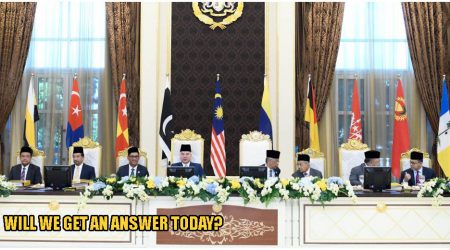
Leave a Reply